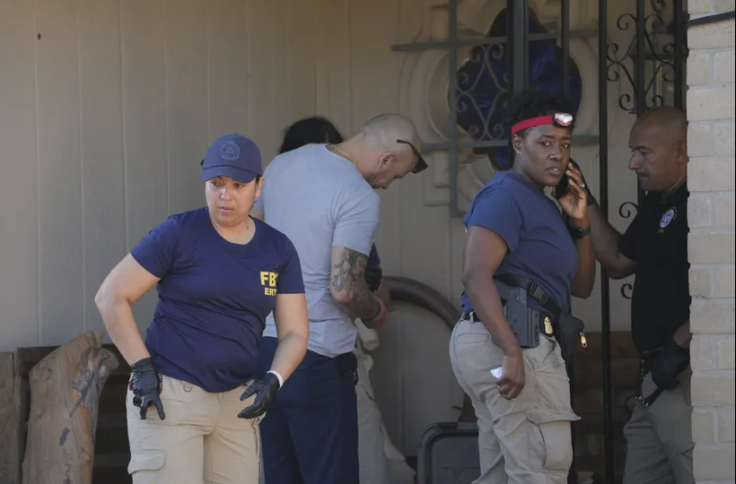
SEATTLE - A multi-agency effort that included FBI SWAT teams from Albuquerque, San Diego and Las Vegas conducted a series of raids in El Paso that resulted in 22 arrests targeting the prison gang known as Chuco Tango.
The raids took place at dawn on Aug. 29 as part of Operation Rock Water, a long-term federal organized crime investigation led by the FBI and U.S. Drug Enforcement Administration targeting the El Paso Gang.
Since the operation began four years ago, there have been 44 arrests, 65 drug seizures, 25 firearms seized and even the seizure of military-grade explosives.
According to federal law enforcement, officers captured Chuco Tango members, associates and drug dealers accused of selling fentanyl, methamphetamine, cocaine and illegal firearms on the streets of El Paso.
In recent years, the Chuco Tango prison gang has become increasingly active on El Paso's streets. It is the local version of the Tango Blast gang, which has cells in major Texas cities. The prison-formed gang gets its name from the nickname "El Chuco" for El Paso.
The operation took place in the cities El Paso, Horizon City, Socorro, Las Cruces, and in Anthony, New Mexico, with prisoners taken to be processed inside the El Paso County Coliseum due to the large number of arrests, according to FBI officials.
Almost two dozen Chuco Tango members face various federal and state charges, including drug conspiracy, possession of a controlled substance with the intent to distribute and unlawful possession of a firearm by a felon.
During a news conference at the Richard C. White Federal Building in El Paso, U.S. Attorney Jaime Esparza said he was "extremely proud" of the federal, state and El Paso-area law enforcement officers that took part in the large and complex investigation.
"This was a long-term operation, not a one and done," Esparza said. "The Chuco Tango gang is one of many problems we have but we are slowly chipping away," he added.
During the news conference, federal agents revealed that four suspects remained at-large —Jonathan Blanco, Carlos Flores, Adriel Belmont and Jessica Rodarte. But by the evening of Aug. 29, Rodarte had been captured and in custody, a DEA spokesman said.
If convicted, some defendants could face federal punishments ranging from five years up to life in prison. Esparza said that the sale of fentanyl remains the main concern.
"Fentanyl in this community is a real problem, just like it is across the state and the country," Esparza said. "Protecting our communities and our loved ones from this dangerous drug and poison that is fentanyl is a priority for the Justice Department."
© 2024 Latin Times. All rights reserved. Do not reproduce without permission.







